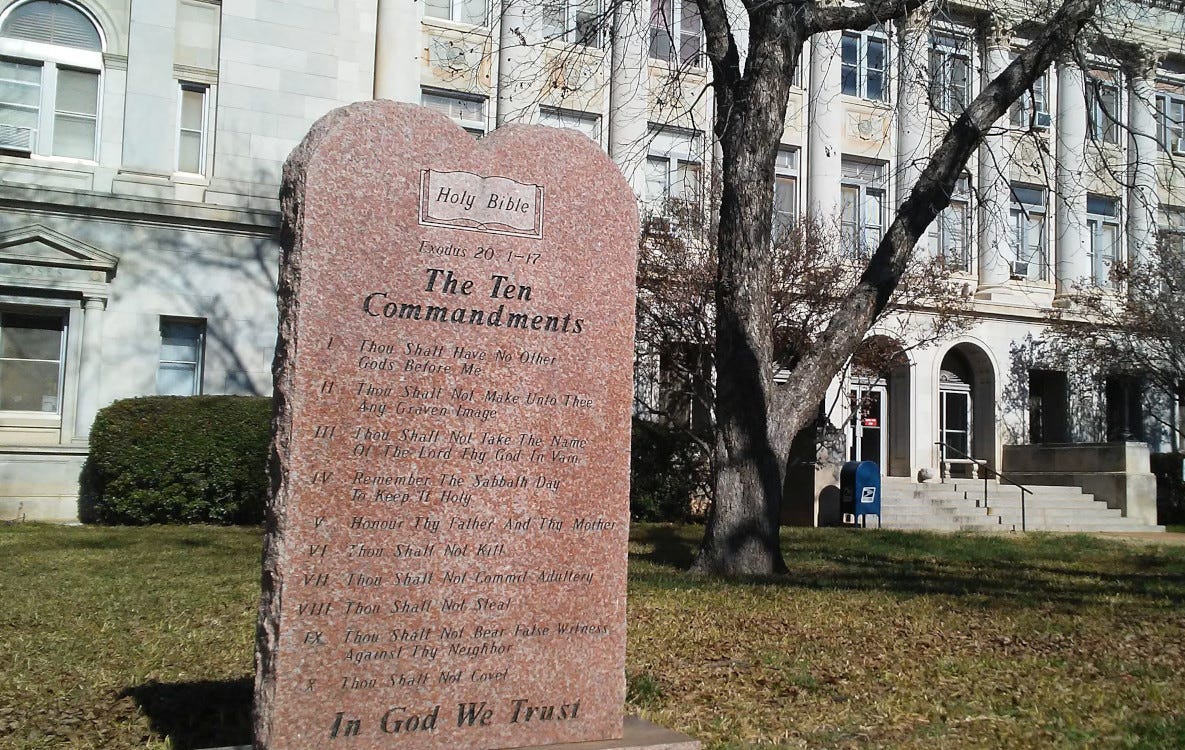Texas to become third state to require Ten Commandments be posted in classrooms
Plan appears to violate a U.S. Supreme Court ruling made in 1980

This article has been updated.
Texas is about to become the third state to require the posting of the Ten Commandments in public-school classrooms.
The Texas House yesterday approved the final amended version of Senate Bill 10 on an 82-46 vote, sending it to Gov. G…


